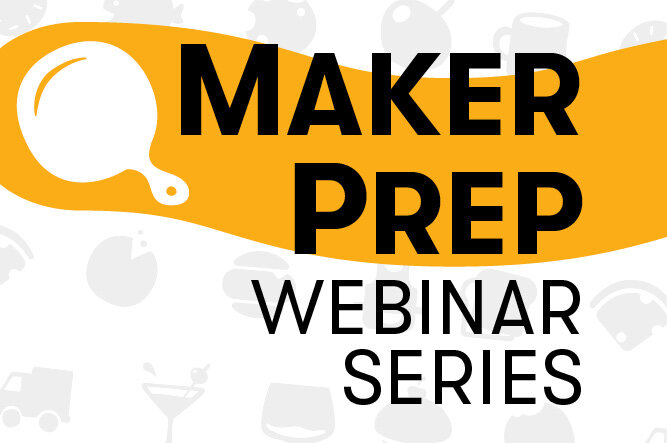During the SFA’s latest Maker Prep webinar, Welcome to the Supply Chain PAIN Train, Brandon Hernandez, co-founder of Whole Brain Consulting, spoke about the mistakes leading to food makers' supply chain troubles and what they can do to avoid them. According to Hernandez, the following missteps may be contributing to their distress:
Mistakes in raw material and packaging partners
• Qualifying unworthy suppliers (they may be a band aid, not a long-term solution)
• Qualifying suppliers without food safety in mind (you need to be sure they can pull safety audits, letters of guarantee to meet FDA standards, letters of insurance, etc.)
• Qualifying suppliers who can barely meet demand now and most certainly won’t in the future (you should be regularly reviewing with supply chain team – don’t set it and forget it)
• Qualifying critical suppliers without benefit of contracting
Mistakes in qualifying manufacturers/co-packers
• Qualifying unworthy manufacturers with no track record of performance (a lack of food safety certifications, FDA registration, or customer performance is unacceptable; you must check their references)
• Qualifying manufacturers with no QA designated personnel. If a site doesn’t have a designated individual for this, that’s a red flag, noted Herandez. Someone needs to champion your brand, on-site, he said.
• Qualifying manufacturers who present opaque pricing – you should know the following before signing blindly, Hernandez said:
1. Cost of goods sold and any markups they take
2. Those responsible in the event of a recall – protect yourself or you could be blamed
3. How much recall insurance they carry and through whom?
4. Storage costs, if any (these can add up very quickly)
5. Any secondary charges (loading/unloading fees, Pick and Pull, etc.)
6. Turnkey v. Tolling
Hernandez stressed that when moving forward with manufacturing/co-packing relationships, companies should be on the lookout for things that could be taken from you.
“What are they doing today that can impact tomorrow”, he asked? He warned companies against giving away the following in their contracts: GS1, UPC, formula, ingredients, unique suppliers, item #’s, and packaging. Finally, he emphasized the importance of having legal review prior to execution of any agreement.
After Hernandez covered what not to do, he suggested that companies should be doing the following:
• Implement a Gold Star Program to create a positive feedback loop for manufacturing partners. First, review “Gold Star” product with your manufacturing team through an internal sample protocol or purchasing product off a retail shelf (preferred). Next, set up a regular time with your QA team to ensure that those reviews happen at regular intervals. If necessary, create a sister sampling program.
• Review at least two to three years’ worth of food safety audits – (1) year is not enough, he said.
• Google “Food recalls (insert company name)” – recalls are public record
• Walk the facility more than once, preferably on different shifts if they produce multiple shifts per day.
• Have you seen them wash anything? If so, was it visibly clean?
• Processing Guides will be key, according to Hernandez. Remember that they may be experts in cookies, but not your cookies, Hernandez said. It is your job to educate them on what makes your product special.
• Be easy to deal with – ongoing negative interactions will get you nowhere and may put you in peril.
• Trust your instincts.
• If you tell yourself the following, he warned that you’ve probably made the wrong choice:
“I have to be there at every production run, or it won’t be right!”
“The manufacturer has to be near my house so I’m close.”
“I have to do everything for them.”
To watch the full webinar recording on demand, register here. To watch the first webinar in the supply chain series, visit here.
Related: Maintaining Supply Chain Success In the New Normal; US Food Supply Remains Under Pressure.

